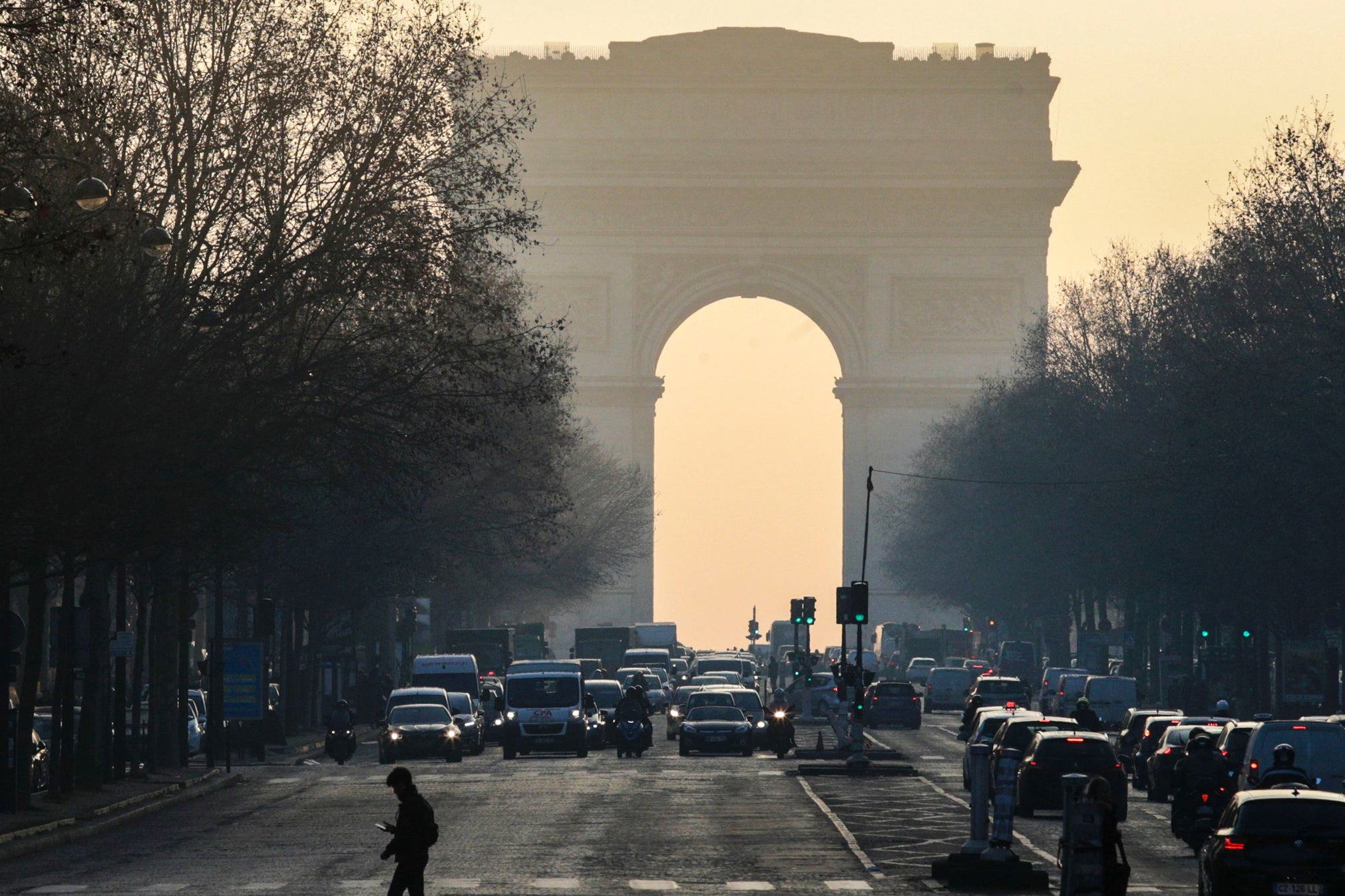UK holidaymakers risk driving illegally overseas because they haven’t packed a length of rope
The European open road is calling to you. But it could be pricey if you fall foul of the weird motoring rules

Sunscreen, bikini, hazard warning triangle, hi-vis jacket? If you’re planning to take your car overseas this summer, it might require a suitcase of its own.
Because there are different driving rules in every country, drivers are being urged to check they understand the Highway Code for their holiday destination as well as to check the kit you are required to have with you when driving.
Required items can include a first aid kit (most of Europe), a breathalyser (in France), a length of rope (Serbia) and a spare pair of driving glasses (Spain). The situation has become so complicated that sales of specialist kits for driving abroad are up 15 per cent compared with last year according to Halfords. The kits, which retail at over £20, include a hazard warning triangle and a reflective jacket, but do not include country specific items such as the fire extinguisher you will require if you are travelling to Greece.
Getting the right kit is important, as being on the wrong side of the law when travelling abroad is worryingly easy.
Recent research from comparison site Go Compare suggests that one in ten of us will be stopped by police while driving outside our own country, which is a particularly alarming prospect if you don’t have the right kit in your car or if your insurance is unsuitable.
Go Compare car insurance specialist Matt Oliver warns that many people assume that their car insurance will give them the same level of protection abroad as it does at home. His figures suggest that this is unlikely, with most offering only a basic level of cover abroad, rather than the fully comprehensive cover you might be used to at home.
“Call your car insurer to discuss your plans and, if necessary, upgrade your policy to foreign-use cover,” he advises. “This will provide comprehensive cover to drive in Europe. Otherwise, if your car is stolen or damaged you could be in for a very nasty and very expensive shock.”
He also warned travellers to check their breakdown cover, since many policies will not cover you in Europe or beyond, unless you pay an extra premium.
David Hammond, motoring expert at Halfords, advised those travelling abroad this summer to find out about the local driving laws before they travel.
“As well as preparing your car for the journey you need to brush up your road knowledge,” he said. “Unfamiliar road signs, lack of local knowledge and driving on the opposite side of the road can all lead to a disconcerting driving experience on the continent. Being prepared and knowing the local laws means families can drive with confidence and avoid unnecessary fines and hassle.”
These rules can be checked in various places, including AA.com, which offers country-by-country touring tips for Europe. In the meantime, here are some rules you ought to know about driving in some popular holiday destinations.
France
What drivers must carry: breathalysers (though the on-the-spot fine for not having one has been postponed indefinitely), reflective jackets and a hazard warning triangle.
Rules to be aware of: France has just instituted a Clean-Air policy in Paris, Grenoble and Lyon. If you drive through these cities you must display a Crit-Air (air quality) sticker on your windscreen. Fines are levied on those that don’t display the sticker and the fines can follow you home. Rosie Sanderson, at the AA, warns drivers to apply for these well in advance.
“Some drivers have reported they paid much more for the air quality sticker than the official cost of €4.80 (including postage). Make sure you apply on the official website – https://www.certificat-air.gouv.fr/en/ – and not some rip-off lookalike site,” she says. You must also display a GB sticker.
It is also forbidden to use speed camera detectors, so check this facility on your sat nav, if you have one.
Germany
What drivers must carry: Warning triangle, hi-vis jackets and spare bulb kits are recommended but not compulsory.
Rules to be aware of: Some German cities operate environmental zones in which access to some vehicles is restricted. If you drive in them you must display a ‘Plakette’ (sticker) in your windscreen and will be fined €80 for not doing so. You can get a ‘Plakette’ from technical inspection centres.
Spain
What drivers must carry: Warning triangle, hi-vis jacket, spare wheel and a spare pair of driving glasses if driving glasses are needed.
Rules to be aware of: You can be fined if your child cycles without a helmet. In one-way streets in some cities you must park on the side of the road with even house numbers on even days of the month, and on the uneven side on uneven days. Speed camera detectors are illegal and must be disabled.
Some other European road rules to note
In Denmark you are required to check there are no children under the car before setting off.
In Russia you can be fined for having a dirty car.
In Scandinavia you must have your headlights on, day and night.
In Cyprus you may not eat or drink anything while driving, including water.
In Finland the speed limit drops by 20kmph in the winter.
Join our commenting forum
Join thought-provoking conversations, follow other Independent readers and see their replies
Comments
Bookmark popover
Removed from bookmarks